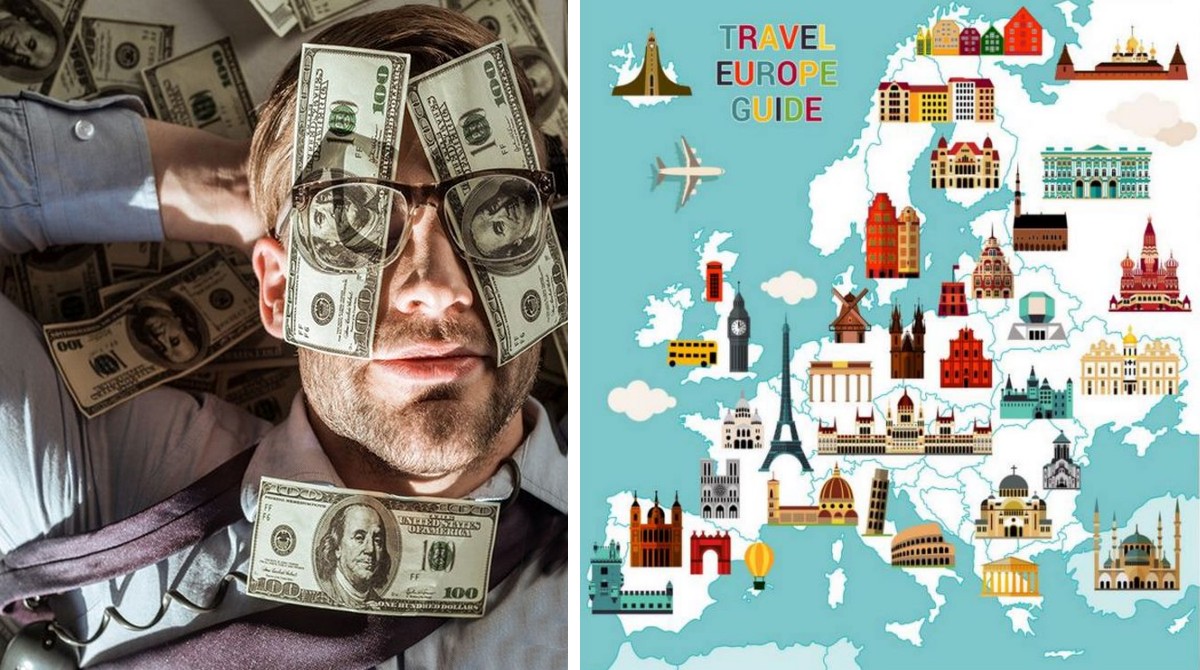The average annual salary of full-time employees in EU countries in 2021 was 33,500 euros. The highest yearly salary was found in the tiny country of Luxembourg, and the lowest in Bulgaria.
Let’s consider where the richest and poorest Europeans live, according to Eurostat. Thus, according to the European Statistical Office, this indicator is used to determine the average annual salary in all countries of the European bloc, as well as to grant work permits to qualified employees that EU countries attract on more flexible terms, including extended rights and the ability to be mobile. indicates the facilitation of moving to another Member State for all Blue Card holders.
The indicator combines national accounts data and the Labor Force Survey (LFS). In other words, the average data is now calculated in a new way: the method is adjusted to take into account part-time workers. Their wages were calculated as if they worked like everyone else, 40 hours a week. Note that the level of prices and taxes in EU countries is different.
The countries with the lowest annual wages were:
- Bulgaria: 10,300 euros
- Hungary: 12,620 euros
- Romania: 13,000 euros
- Poland: 14,430 euros
- Greece: 15,880 euros
- Slovakia: 16,160 euros
- Croatia: 16,170 euros
- Czech Republic: 18,710 euros
- Portugal: 19,300 euros
Experts classified the following as countries with an average annual salary of 20,000 to 30,000 euros:
- Estonia: 21,480 euros
- Lithuania: 21,740 euros
- Cyprus: 22,730 euros
- Malta: €27,330
- Spain: 28,180 euros
- Slovenia: 28,760 euros
- Italy: 29,950 euros
Luxembourg is recognized as the richest EU country in terms of average annual salary. The mini-state was followed by Denmark and Ireland – they also have the highest annual wage rates in Europe – 63,260 euros and 50,350 euros, respectively. In countries such as Belgium, Austria, and Sweden, the average annual salary is between 48,720 and 46,930 euros. And in Germany, Finland, and France – 44,440 euros, 43,190 euros, and 40,130 euros, respectively.
At the beginning of the year, member states increased the EU Blue Card minimum wage, the minimum wage EU employers are required to pay their third-country workers.
Germany has increased the minimum wage for salaried workers for first-time applications and renewals, increasing the annual salary for non-scarcity occupations to €56,800 from €55,200, while for scarce occupations the annual salary will be €44,304 from 43,056 euro. The Netherlands has also increased its annual salary threshold for 2022, which has increased from €5,403 to €5,567.
“Foreigners who already have an EU Blue Card or highly skilled migrant work permit do not need to increase their wages to match the 2021 wage level. The new salary threshold should only be met if an extension is required,” said Dutch immigration firm Newland Chase.
Reference: The Blue Card is an identity card, GNP, which gives citizens of third countries, including Ukraine, the right to live and work in the territory of most EU countries. The scheme was created in 2009. Similar to the Green Card in the USA, only they are not won, but issued to professionals with a high-quality education. Denmark and Ireland are the only two countries that do not participate in this scheme.

